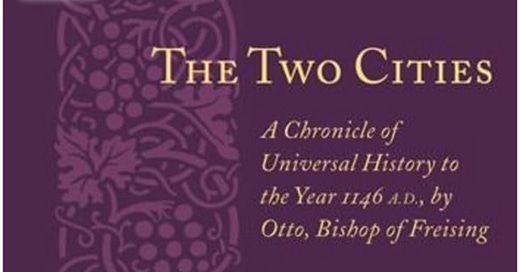From time to time, we offer reading recommendations for those interested in the classical legal and political tradition. This installment is a potpourri of what the editors are currently reading — including both some contemporary texts with classical themes that have come across our respective desks, and some genuine classics.
Michael Foran, Equality Before the Law: Equal Dignity, Wrongful Discrimination, and the Rule of Law. New Digest’s own Michael Foran has written a learned and rigorous account of anti-discrimination law grounded in the equal moral status of all legal subjects. Foran argues that the demand that individuals be treated in accordance with the principle of equality before the law requires that they not be treated in ways that would deny their equal moral standing. This principle of moral equality is the fundamental normative basis of the rule of law. Michael builds his account on the work of Aristotle, Aquinas, Coke, Fuller, as well as more contemporary British public law scholars like TRS Allan and Sir John Laws. The New Digest has been offering a rolling symposium on the book, with an introduction by Michael, entries by Conor Casey and Asanga Welikala, and more to come.
Sean Coyle, Natural Law and Modern Society. Professor Coyle is one of Europe’s foremost natural law jurists. This work represents the culmination of nearly two decades of reflection and writing on perennial questions of the classical natural law tradition. Natural Law and Modern Society offers a restatement of natural law theory, primarily grounded in the thought of Saint Thomas Aquinas, and engaging with the more contemporary work of the likes of Charles de Knonick, Heinrich Rommen, Jacques Maritain, and John Finnis. It is aimed at answering a wide range of questions, from the nature of morality and ethics to the theory of law, obligation and political authority; from the domestic realm to international community. Coyle sets out to identify a 'core morality': a set of moral requirements that are foundational to every society at all places and times, as distinct from those standards that are particular to this or that society at some time.
Anna Grzymala-Busse, Sacred Foundations: The Religious and Medieval Roots of the European State. Professor Grzymala-Busse presents an accessible overview of how the medieval Church drove state formation in Europe. It argues that the medieval church was a fundamental force in European State formation, departing from orthodox accounts focused on early-modern warfare or social contracts between the ruler and the rules. This book shows that the Catholic Church existed in a relationship of tension and support with medieval monarchs, often providing templates for governing institutions, the rule of law, and parliaments. This is a fascinating introduction to medieval public law that emphasises the religious roots of the modern nation-state.
Otto, Bishop of Freising, The Two Cities: A Chronicle of Universal History to the Year 1146 A.D., translated by Charles Christopher Mierow. Otto, a Cistercian, was himself both a bishop and a prince of the Empire, a son of Leopold III, Margrave of Austria. He persuaded his father to found Heiligenkreuz Abbey near Vienna (where Vermeule had the pleasure of spending some time as a guest of the great political theologian Pater Edmund Waldstein last summer). Otto’s majestic theme is that both the temporal and spiritual powers, both regnum and sacerdotium, are constituent parts of a well-ordered polity that restrains, at least for a time, the forces of chaos and disintegration.





